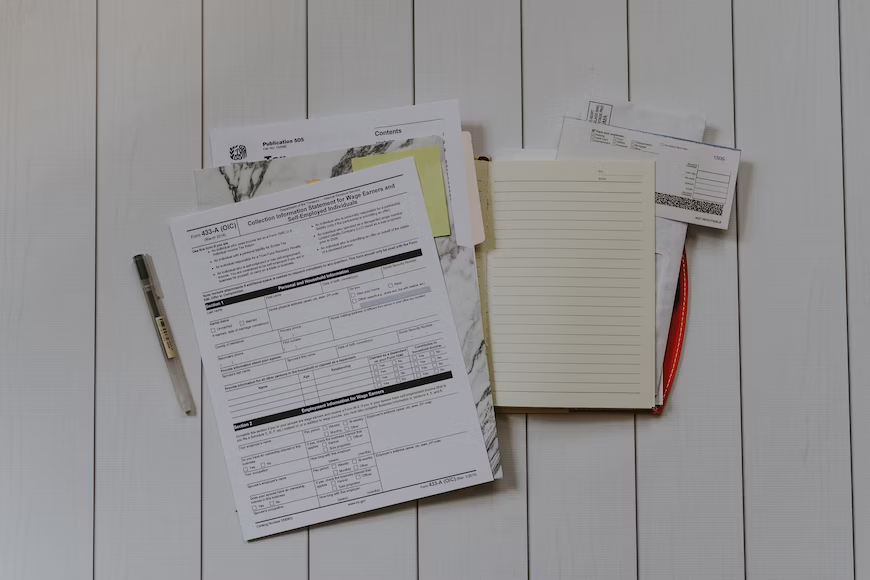Nobody enjoys tax filing at the end of the financial year, but accurate records and receipts are essential to a successful business.
Keeping your business receipts, documents, invoices, and other paperwork organized helps you track expenses, calculate taxes owed, manage customer cash flow issues, and even apply for available deductions.
Many people are unsure how long they should keep their records – too short a period could result in penalties, fines, or even criminal charges if revenue isn't accurately reported; however, storing old documents for too long can lead to increased overhead costs related to space, time spent sorting through irrelevant paperwork and potential security risks.
In this article, we'll dive into exactly how long records need to be kept before it's safe (and cost-effective) for businesses of any size to securely dispose of them.
Overview of IRS Record-Keeping Guidelines
According to the Internal Revenue Service (IRS), you should keep your business tax records and receipts for at least three years from the date you filed your original return or two years from the date you paid the taxes due, whichever is longer.
However, some documents may need to be kept for up to seven years. Not doing so could result in paying late fees or additional taxes.
How long it takes to keep Copies of Tax Returns
You should keep copies of your tax returns in a safe place indefinitely. These documents are important records and could prove useful if the IRS ever audits you or need to reference information from a previous return.
It's also a good idea to keep records that support an item of income, deduction, or credit appearing on any year's tax return in case you need to refer to them later. In some cases, submitting a copy of the prior year's return is necessary when filing current-year returns.
Keep records and documents that verify any amending or correcting of returns due to an audit or other issue for at least three years from the date you filed the amended return.
How Long to Keep Business Records for Bookkeeping
In addition to tax records, all businesses should keep financial and operational records, such as invoices, bank statements, payroll records, and employee personnel files. These documents should be kept on file for at least four years.
It's also a good idea to keep records longer than the minimum requirements in case of an audit or lawsuit.
Keeping business and tax records organized and properly stored can help businesses anticipate potential audits or disputes and provide adequate documentation if needed. You can avoid fines from the IRS and other government agencies by remembering record-keeping regulations.
Document Retention for Different Types of Transactions

The IRS also recommends that businesses maintain different types of documents for various transactions. For example:
Sales and purchases
Keep invoices, credit card receipts, canceled checks, bank statements, and other documents related to sales and purchases that involve your business for at least three to seven years.
Employee records
Retain employment and withholding tax statements, payroll documents, time cards, and other employee personnel records for at least four years after the employee leaves the job or the date of filing Form 4137, Social Security and Medicare Tax on Unreported Tip Income.
Property records
Keep documents related to the purchase, sale, or trade of any business assets, such as real estate, vehicles, equipment, and furniture, for up to seven years.
Keeping the right documents and having them readily available can help businesses maintain accurate records, protect their financial interests, and stay well-equipped to meet any audits or disputes.
A solid understanding of record-keeping regulations and knowing how long to keep business tax records and receipts can help businesses manage their finances year after year more effectively.
How Long to Keep Payroll Records
Payroll records should be kept for at least four years. This includes things like paystubs, W-2s, and other forms related to employee wages. Employers must also retain records of state unemployment taxes paid and any other deductions withheld from the employee's paycheck.
Records related to collective bargaining agreements or union membership should also be held for at least four years. Employers must keep copies of any documents related to employee benefits such as retirement plans, health insurance, and workers' compensation plans for the length of their duration.
Payroll records should be stored safely, with access limited only to those who need it. Doing so can help employers protect themselves from potential employment disputes and help employees receive accurate payment history records.
Furthermore, it can help employers maintain compliance with IRS regulations and state withholdings and ensure that employees can access their financial information promptly.
Tips for Storing Your Business Tax Records and Receipts

Storing your business tax records and receipts organizationally is essential for efficient filing. You should keep these documents updated, safe, and easily accessible for quick reference.
It's also important to create a backup plan in case of any natural disasters that could destroy paper copies of your records. Storing digital copies on an external hard drive or cloud-based storage can protect your important documents.
Finally, always shred any old or expired documents you no longer need to keep on file. This will prevent sensitive information from falling into the wrong hands and help protect your business's security.
By following IRS record-keeping guidelines and knowing how long to keep business tax records and receipts, you can ensure that your business complies with current regulations.
Keeping accurate and organized documents can help protect your business from potential audits and disputes. Storing digital copies of important documents securely can also provide additional protection for your business if any natural disasters occur.
With these tips and guidelines, you can easily manage your business tax records and receipts efficiently.
FAQs
How long should I keep business tax records?
The Internal Revenue Service (IRS) recommends that businesses keep records for three years. However, some companies may need to keep their records longer, depending on the type of transaction and tax deductions taken.
How long should I keep business receipts?
Business owners should keep all relevant receipts for the current year plus the three previous tax years. Receipts are important to support deductions taken on income tax returns. Additionally, businesses could be required to produce these records during an IRS audit. It would help if you stored your business receipts in an organized manner for easier reference and retrieval.
What are the consequences of not keeping good records?
Keeping accurate records and receipts can have serious consequences, such as the inability to prove deductions taken on income tax returns. This could lead to higher taxes and an increased risk of facing a tax audit by the IRS. Business owners should know that the IRS can assess penalties for filing incorrect or incomplete return information.
Conclusion
Ultimately, these tips from this blog post have supplied you with the essential information about how long to keep business records and receipts and give you peace of mind in knowing what to keep and for how long. Keeping your paperwork organized will not only help during tax filing but also enable your business operations to be smooth and efficient.
To help make sure your records are organized while understanding which documents may need to be kept for up to seven years, print out the "How Long To Keep Business Tax Records and Receipts" Guide today!




